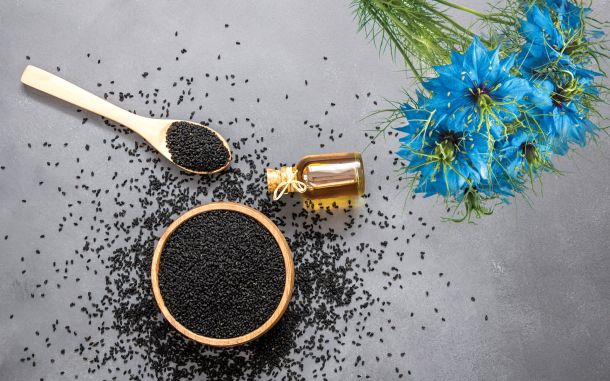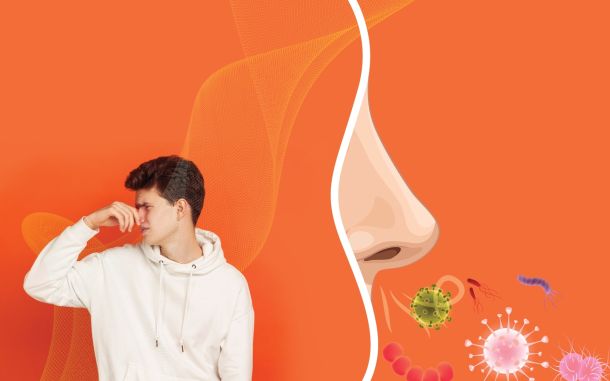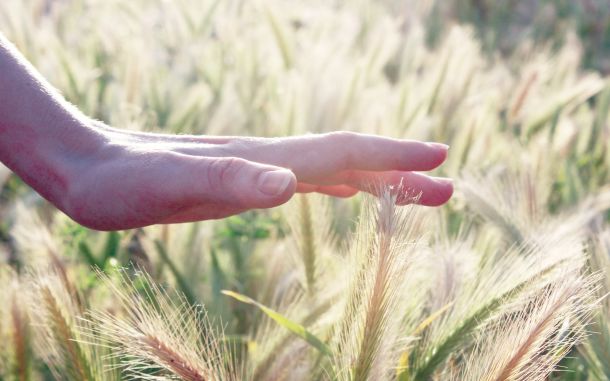Against All Odds

In This Article
-
I am out of the car and running before my husband has turned off the ignition. This feels scarier than I have imagined on past occasions: parents bringing in their little ones in the middle of the night with ailments that in our home would be treated in the very early stages.
-
I picture Dr. Levy in a frame with attendings I have known. What would they say if they heard him talk about prayer and God with his patients? My own experience has taught me to keep my faith and my profession separate.
I am certain that if, two hours ago, I hadn’t seen it happen right in front of my eyes, my guts tied in a one-handed surgical knot, I too would chalk up my three-year-old’s complaint of abdominal pain to a case of good-old constipation. A nuisance, especially at a family reunion, but certainly not a medical emergency.
“What did he eat on the way?” my mother asked. She practically raised all four of us on her own—no family, no village, and no husband (at least not until late at night, when we’d all be asleep anyway).
“Pretty much just candy and chips. Very little water. I didn’t make him either—the rest stop bathrooms have gotten gross.”
I push away my ER attending voice that would, in a different place, be reprimanding an intern’s lack of attention-to-detail: three-year-old, history of recent trauma, persistent abdominal pain—what’s up there on your differential?
But trauma—could it really be classified as such?
Only if I hadn't seen it happen.
For the last two hours, the mental movie of the ill-timed incident has thwarted my best efforts at pausing it, and now, it plays again.
My toddler, Aariz, small for his true age but growing well on the adjusted preterm chart, runs down the long staircase of the rental we have just entered. We stroll from room to room, exploring with childlike curiosity our five-bedroom home away from home for the next week. My brother’s family should get the master room, my parents say, and I agree. With three little kids, they need the space.
“You think we can take the one downstairs?” my sister asks me, and I know right away why she is asking. A single mother of two, her life revolves around accommodating her ten-year-old with autism. She has just started him on a new medication, which apart from increasing his appetite, must also have led to stiff ankle joints. Stairs would be difficult for him.
“Sure, no problem,” I say.
My nephew, his hands flapping in the air, dashes directly towards my son. I see the carefree look on his face and know he has no plans of stopping or avoiding the inevitable. They crash into each other near the landing, my son falling backwards from the impact, my nephew standing over him, waiting for the wailing to begin. Hands over his ears, he runs away right when it begins, a high-pitched, agonizing cry that manages to pierce every capillary in my heart.
His complaint began right away. No improvement since, and nothing seems to make it better.
Generalized abdominal pain; persistent; intractable.
“Give him some castor oil,” my mother’s voice interjects the interaction in my head: my resident presenting, me ruling in, ruling out. “I’ll make him more fennel-water.”
I rub my son’s back, searching his face for more diagnostic clues. He continues to give me none, running away to play with his cousins one minute, then circling right back to me the next, clutching his tummy.
“No, not the castor oil,” I declare, resolutely this time, hoping to end that discussion. A bit of flavored water is fine, but I refuse to concede to an unapproved laxative. “I don’t think this is constipation. I think we may have to take him in.”
Thanks to the recent viral epidemic that divided the family clearly into two camps—my mask-wearing, hand-sanitizing family of four, versus everyone else—the raised eyebrows and hush of resigned sighs do not come as a surprise. I look at my husband, and he nods his agreement. I could hug him right now.
Aariz runs towards me but misses my lap by a few steps. A projectile arc of yellow mucus mixed in with bits of orange-colored Cheetos flies out of his mouth, splattering onto the hardwood floor.
In one fluid motion, I grab my son and catch the roll of paper towels my husband has thrown my way. Between us, we have cleaned the floor, announced our exit, and punched in the directions to the nearest pediatric ER, all before I even have the chance to verbalize the diagnosis that has seized my brain with an absoluteness I have come to know so well.
“Are you sure?” my husband asks, struggling to stay within the speed limit. The unfamiliar roads are disorienting, and though neither of us says it, I know he too wishes we were on route 99 right now, the one that runs in front of our home of eleven years.
“Well, you’d have to see it on the ultrasound to be sure, but as far as the clinical picture goes, I’d be surprised if it wasn’t.”
This is good, the talking through the differentials, just like at work. My husband knows this and continues playing his part so I can play mine. The alternative is a territory neither of us wants to explore.
“Okay, so you have seen it before? What’d you say it was?”
“Intussusception,” I say it fast to outrun the word’s prognoses, complications; they catch up with me. Aariz’s body slumps further into my lap. “Jaanoo, just go fast, please.”
I think about the handful of patients I have diagnosed with this condition over my decade-long practice—at most twelve, maybe fifteen. All infants, much younger than Aariz. Because telescoping of one part of the intestine into the other, cutting off blood supply to a portion of it, is not supposed to happen past the age of two. Unless, of course, forced by blunt trauma.
I am out of the car and running before my husband has turned off the ignition. This feels scarier than I have imagined on past occasions: parents bringing in their little ones in the middle of the night with ailments that in our home would be treated in the very early stages. Early stage. This must be caught and treated as quickly as possible. Time is his intestine. My ER physician hat is firmly back on as I rush to the front desk.
“Hello. Please fill these out.” The nurse behind the computer hands me a clipboard; my husband has caught up with me and I hand the clipboard to him.
“Hi. This is Aariz.” I say in my best we-can-be-out-of-your-hair-real-fast kind of voice. “We have had an unfortunate situation happen. Him and his cousin were running and they…”
“Ok, one thing at a time. Once he’s checked in, the triage nurse will take the history and then we’ll get the doctor to come see him.”
“I am sorry, yes. Actually, I am an ER physician. We are supposed to be on vacation, and then this happens.” She nods, her mouth upturned in a sympathetic smile, and I take my chance. “Look, I think he has an intussusception. Would he be able to get an ultrasound fast?” The thought of my baby’s unclothed body on a cold ultrasound table makes the ball in my throat grow, and I swallow the ache.
“Oh, okay…” she looks away, embarrassed, I suspect at how close I must seem to the brink. My husband puts his hand on my shoulder, confirming my suspicion. “Let me page the ER doctor on call.”
Dr. Levy, a grey-haired man with glasses, walks briskly towards us as I finish wiping Aariz’s face after another episode of vomiting. I notice his unstained scrubs with gratitude; he is at the beginning of his shift.
“Hello, Dr…” he says, good-naturedly, his hand extended.
“Ali. Anam Ali.” I shake it firmly. “Thank you for seeing us, Dr. Levy. I hope we aren’t intruding in the middle of a busy shift.” I continue bobbing up and down, Aariz’s upright form now limp in my arms. Electrolyte imbalance is kicking in.
“Good, no not too bad. Y’all aren’t from around here, I hear?”
“No,” I manage a little laugh. Every muscle fiber in my legs itches to propel me into a sprint towards the ultrasound room, but there’s nothing worse than a hysterical parent in the ER. “Family reunion, then this happens. You know how it goes.”
“Yep, yep. So, you pretty sure it’s that, hunh? What is he, three? A little old, but I have seen it.”
He didn’t even name it. I swallow the ball again. “Yea, head-on collision with his ten-year-old cousin. I saw it happen. Bilious vomiting twice since then, just started getting lethargic.”
“Alright then. Let’s get him to ultrasound.”
Aariz’s blanketed frame against me, and I rest my head on the back of the chair, fighting back tears. Aariz had cried and writhed on the ultrasound table the entire time, my arms holding his down, while my husband held his legs. Under the arm of my chair, my husband slips his hand into mine.
A musical knock on the door indicates our wait is over. Dr. Levy’s face appears in the door, and I know immediately. The knot in my gut clamps down; I wish it were my intestines instead.
“Yep, Dr. Mom, you were right. Intussusception it is.” Precisely like I would have said it to a patient from that side. “You caught it early. Shouldn’t be too hard of a fix. We’ve paged GI, they are on their way.”
Hot tears run down my face but I have no hands to wipe them off with. From this side, the diagnosis seems anything but a quick-fix. Yes, an air enema reverses the telescoping by pushing air into the intestine through the rectum, but what about adverse effects of the procedure? Life-saving procedures I prescribe with effortless certainty multiple times a day loom over me with their peer-reviewed variabilities. I tighten my arms around Aariz. My husband wipes my tears, and Dr. Levy pulls up a swivel stool across from me.
“It’s different when it’s not a patient, isn’t it?” He rests his hand over mine and I abandon the struggle.
“What about recurrence?” My shaky voice echoes against the sterile floor. “How can we prevent it?” I am aware of the futility of my question, and I know he is too; recurrence of intussusception has been an area of study for years. Why it happens in some children and not in others, remains in that dreaded medical territory of idiopathic.
Dr. Levy leans forward; I prepare myself for the worst, but I am glad that he has decided to be honest. Besides exceptional patient reviews, my quick Google search on him while awaiting the ultrasound results have placed him somewhere around twenty years my senior on the career trajectory; he’s got to have more data points than I do.
“Are you a family of faith?” He blurts out. “Do you pray to God?”
I am not sure I have heard him correctly, and I can tell neither is my husband, whom I see turn toward me from the corner of my eye. I stay still, not sure what to do. Maybe a nurse will come in, and we can pretend this never happened.
“Would you mind if I prayed for Aariz with you?” He presses on, sounding surer of himself.
“Yes, actually we are Muslim.” My husband says, his tone apologetic. “And yes, we are supposed to pray. Five times a day actually.”
“Great!” Dr. Levy is visibly relieved. “It’s been sort of a coin toss for me. Some patients are eager, others are offended.”
I picture Dr. Levy in a frame with attendings I have known. What would they say if they heard him talk about prayer and God with his patients? My own experience has taught me to keep my faith and my profession separate. In a world of observation, causation, and correlation, what room was there for the unseen, the unexplainable?
“Dr. Ali, you’ve never prayed with your patients before, have you?” I shake my head no. “You know you’d think patients always want absolutes. When we can give them that, sure—take this medicine and you will get better. But you know as well as anyone that a procedure can be technically flawless, yet the outcome surprises everyone. And the other way around. I pray not because I lack confidence in what I can do, but because I am confident about what God can do, against all the odds.”
I think of my fifty-something year old cardiac patient from over a year ago—obese, longstanding coronary artery disease, massive infarction needing emergent bypass surgery, his third. All the odds stacked against him. I saw him again, more recently, bringing in his granddaughter for flu symptoms; himself, fit as a fiddle.
My husband does the foot-tapping thing he does when something is on his mind and I know what he’s about to ask; we’ve talked about it before. “What happens when you pray to God with your patients and the surgery doesn’t go… you know… well?”
Dr. Levy leans back and crosses his arms. “It happens. And when it does, I ask my patients what they would do if they hadn’t prayed and ended up with the same outcome anyway. Would they never trust doctors again? Stop seeking medical care? Trusting God is a little bit like that, except unlike doctors, God’s work doesn’t end with the procedure, whether or not it goes ‘well,’ as we see it. Healing is still very much a mysterious process with its own set of outcomes, often independent of the procedure.”
The knot under my ribcage slackens. “Dr. Levy, if you don’t mind, I would like to say the prayer.”
We close our eyes.
“God, indeed You are the One in control. Your knowledge and wisdom are unlimited, while I know only that which You have allowed me. Help me submit to Your plan. Out of Your infinite Mercy and Love that encompass us even in moments when we aren’t aware, heal Aariz in the way You know is best for him."
“Amen.”
The nurse enters with a small gurney, a pediatric-sized hospital gown hanging over the side railing. I loosen my grip around Aariz and carry him across the room.
“Mama,” he protests weakly, his tiny hand tightening around the collar of my dress. I take his hand and kiss his fingers; the fragrance of the bodywash from this morning still on his skin.
Looking him in the eyes, I hold his palm up against mine, our thing every morning outside his preschool classroom. “You will be just fine. He’s going to fix you.”
“That’s right,” the nurse says. “Dr. Benny has fixed so many children just like you.”
Her words linger in the antiseptic-infused air around us; I smile and mouth thank you. Molecules of oxygen are allowed to travel, unhindered, past my ribcage and fill my lungs, to carry on the mysterious, life-sustaining exchange of gases. I let go of Aariz’ hand, and the nurse takes hold of the gurney’s handles.
“We’ll see you after.”
We watch the gurney glide down the hallway, until we can no longer see what’s not in front of us.









